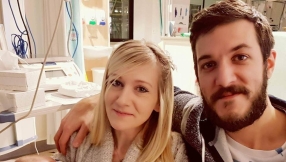Anger over courtâs decision to acquit suspects in Coptic killing case
In a hearing on Monday, a state security court in Qena upheld the death sentence handed to chief suspect Mohamed Ahmed Hussein last month but decided to acquit the suspected accomplices.
In a report by the Assyrian International News Agency, the Coptic Orthodox Bishop of Nag Hammadi, Bishop Cyril, condemned the verdict.
He said it had brought pain to the victims’ families, who had expected lengthy prison sentences to be imposed on the two accused.
He said the acquittals showed that in Egypt “the blood of a Christian is worth nothing”.
“The court imposed one death sentence because on Muslim was killed, and the Egyptian judiciary wasted the blood of the six murdered Copts, who are of no value to the society,” he said.
“This verdict [has] saddened all Christians worldwide because it means that the State is applying Islamic Sharia [law] on Christians in Egypt.”
Attorney George Sobhy, one of the Coptic lawyers involved in the case, said he believed the court’s intention had been to acquit the accused all along.
In a report by International Christian Concern, a US-based ministry supporting persecuted Christians, the attorney said Hussein would have probably been given an acquittal had he not been sentenced earlier in a separate hearing.
The verdict has left Sobhy doubting whether the revolution will change anything for the country’s Christians.
He said: “Unfortunately corruption is rooted to the core everywhere. This verdict only proves that what is being talked about lately of equality, justice and freedom of religious belief is just empty talk.
“If our constitution has Sharia law embedded in it, then the bitter truth is that as Christians we have no place or value in this country.”
The US Commission on International Religious Freedom (USCIRF), a bipartisan government body, has also condemned the verdict. Its chair, Leo Leonard, accused the Egyptian courts of committing “serious breaches of due process and fairness”.
He warned that the cycle of violence against Christians would not be broken unless the perpetrators of sectarian violence were brought to justice.
He also called for a full investigation into the deadly bomb attack on a church in Alexandria on New Year’s Day and urged the Egyptian authorities to step up security around churches.
“A new Egyptian government must, in the regular criminal courts, prosecute perpetrators for sectarian killings in the country, and the government should complete a thorough investigation and vigorously prosecute and bring to justice those responsible for the New Year’s Eve bombing in Alexandria,” he said.
“Incomplete justice does very little address the perpetual cycle of violence targeting religious minorities that has remained unchecked by the government in Egypt.”













